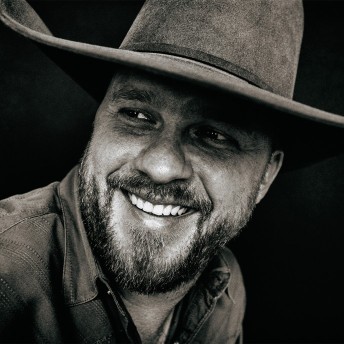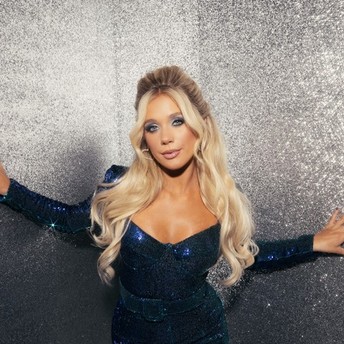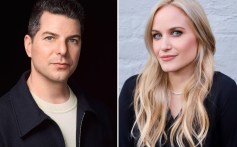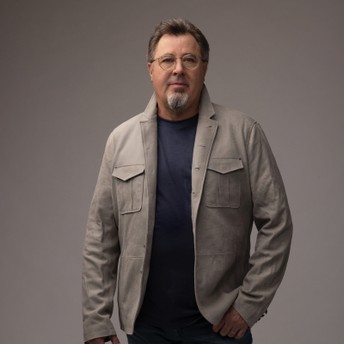genre country
Page: 8

Trending on Billboard
Three years after the legendary Ernest Tubb Record Shop closed in 2022, the iconic establishment is gearing up to celebrate its official reopening during a celebration set for Nov. 13.
Explore
See latest videos, charts and news
The late Country Music Hall of Fame member Tubb, known for hits including “Walking The Floor Over You,” “Soldier’s Last Letter,” and “Waltz Across Texas,” first opened the Ernest Tubb Record Shop on Nashville’s Commerce Street in May 1947. Since 1951, the Ernest Tubb Record Shop has been in its current location at 417 Broadway in downtown Nashville.
While the shop sold vinyl records and music songbooks, it also became a heralded performance spot due to Tubb’s Midnite Jamboree, where artists who were performing on Saturday nights at the Grand Ole Opry (then centered at the Ryman Auditorium) would head to the nearby shop afterward to perform late-night sets that would broadcast on WSM radio. Over the years, Tubb, who joined the cast of the Opry in 1943, welcomed and encouraged artists including Loretta Lynn, Hank Williams, Patsy Clin, and Johnny Cash, giving younger artists valuable career exposure. Over time, the shop became a home for community and camaraderie. Tubb was inducted into the Nashville Songwriters Hall of Fame in 1970, and won the Academy of Country Music’s pioneer award in 1980. Tubb died in 1984.
The same year the shop closed, brothers Jamie and Bryan Kenney, co-founders of management company Tusk Brothers Entertainment, bought the four-story building. The brothers are the team behind Nashville’s Wedgewood-Houston bar Never Never, as well as Reunion Bar & Hotel in East Nashville. They teamed with Tubb’s grandson Dale Tubb, as well as top-flight Nashville session musician Ilya Toshinskiy, to revitalize the record shop.
“The first time I met these guys, they said, ‘We’ve been entrusted with this important piece of history,’” the younger Tubb tells Billboard. “Everything they do from a storytelling standpoint is to preserve and tell that story properly, to preserve the essence, the bones and the spirit of this place.’”
Now, the building that houses the Ernest Tubb Record Shop, has been revitalized to not only revive the record shop, but make use of all four stories, adding performance spaces, a honky-tonk and an open-air rooftop bar. The walls have the original exposed brick.
Ernest Tubb Record Shop
Andrea Behrends
In the process of preserving the building, the brothers got a first–hand look at the memorabilia Tubb’s grandson had kept over the years, such as journals where the country artist scribbled song ideas, a letter from Minnie Pearl telling Tubb she’d dropped off muffins for him, or a telegram from Johnny Cash telling Tubb that one of Cash’s children had been born. There is another letter from Cash, wherein the Man In Black was attempting to get a meeting with Tubb to discuss playing on the Grand Ole Opry. Much of that memorabilia now lines the walls of the building’s four floors.
“We saw the depths of his influence in a totally new way,” Jamie Kenney says. “[Ernest] was truly the godfather, the kingpin of country music.”
“It’s still very in line with what he did,” Dale Tubb says of the venue’s continuation of his grandfather’s legacy. “He partied hard. Granddad would be slinging booze in here. This place evolved, just like the music did. Music evolves as society evolves.”
The first floor features a honky-tonk with two bars and two stages (including the original stage of Ernest Tubb’s Midnite Jamboree), as well as photos of Tubb with his fellow country stars. Throughout the venue, there is more memorabilia, such as Tubb’s guitars, cowboy boots from the 1940s and a revolver Tubb used as a prop when filming the western The Fighting Buckaroo.
“The story that the first place Patsy [Cline] played in Nashville was the Midnite Jamboree; well, here’s the thank you letter from that night. What are the odds that it’s still in mint condition and didn’t get tossed or hidden in someone’s private collection?” Dale Tubb says. “You could immediately tell there was a sense that these guys care about this type of environment. There’s a true respect for the music.”
On the second floor is the record shop, with vinyl records for sale on wooden shelves, along with branded merchandise, another bar and space to host live acoustic performances in an intimate setting. The third floor offers a private event space, outfitted with vintage lighting and a bar, offering an exclusive setting for industry showcases, album release parties and label events.
Ernest Tubb Record Shop
Andrea Behrends
“Through the whole project, we want to honor the music business, because the music business is the piece that built this,” Jamie says. “We’ve been touring all the labels and the Opry and publishers and artists and just kind of saying, ‘We’re the stewards of this, but this is yours.’”
The basement has been revamped to become The Forty Seven lounge, which showcases wood-paneled walls, vintage accents and velvet seating — all paying tribute to 1947, the year Ernest Tubb’s Record Shop first opened. The Kenney Brothers estimate the remodeled venue has a capacity of around 1,000 people.
“Ernest Tubb seemed to be the classic gatherer of the people, and he was very ahead of his time,” Jamie says. “He always honored the past, but he would always grab the younger artists of his day, people that were up-and-coming. We want to reflect that, too. All these things we’re calling ‘country-adjacent’ or ‘folk,’ ‘Americana.’ I think he would have loved that. It’s going to be a curated artistic aesthetic.”
On Nov. 15, the longtime Midnite Jamboree will return to Ernest Tubb’s Record Shop, airing on WSM 650 AM radio.
“The soul of the record shop was the performances and these country stars wandering over from that alley 200 feet away, after they performed at the Opry, grabbing a flask of whisky or a six-pack, jumping onstage and having a party,” Bryan says.
“We don’t just want to save the record shop,” he adds. “We want to restore the DNA of what made it great and give it a new iteration, so it has many more years.”
Ernest Tubb Record Shop
Andrea Behrends
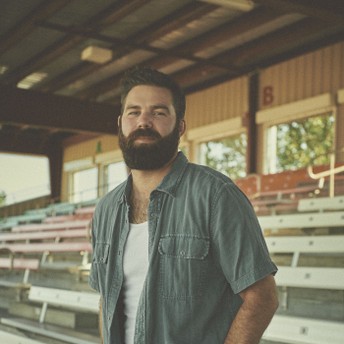
Trending on Billboard
In Jordan Davis’ 2023 single “Tucson Too Late,” the singer races to the airport, hoping to save a relationship.
His latest, “Turn This Truck Around,” reverses direction. In this case, he’s driving away, attempting to end a partnership. It’s similar in storyline to Glen Campbell’s 1968 release “By the Time I Get to Phoenix,” though there are sharp differences. “Truck” sounds tougher and technology makes it more likely the woman he’s leaving can initiate a conversation that will make the guy cave.
“‘By the Time I Get to Phoenix,’ you’ve got to find a pay phone, even if you want to make the call,” Davis notes. “Now we’re carrying our phones around.”
Explore
See latest videos, charts and news
The only actual travel involved in writing “Turn This Truck Around” was the four songwriters’ commutes to Nashville’s Anthem Entertainment on Dec. 7, 2024, and the family trips they rekindled in conversation. Davis talked about chauffeuring his three kids (he and his wife, Kristen, have since added a fourth), and Warner Music Nashville artist Devin Dawson recounted a ride he and his twin brother, writer-producer Jacob Durrett, took to the Six Flags theme park in Vallejo, Calif., when they were young.
“My brother and I are in the back seat, just being little hellions and picking on each other and shit,” Dawson says. “I remember [Mom] saying, ‘Don’t make me turn this car around.’ ”
Those images didn’t take on significance until Jake Mitchell (“One Beer,” “Some Girls”) introduced a pulsing track he had developed with a simple chord progression. It had a Tom Petty air about it, and discussion about the driving beat led to talk about driving imagery. Dawson brought the earlier conversation back up with a slight revision to the vehicle, “Turn This Truck Around.” The work was fairly easy.
“It doesn’t feel like we talked about what the idea would be that much,” Mitchell offers. “It kind of just came out. And I feel like we didn’t put too much story in there. It’s more so just about that moment when you’re thinking to yourself, ‘Don’t do it, don’t do it. Don’t go back.’ ”
The chorus melody emerged first, and Josh Thompson (“Drowns the Whiskey,” “Wasted On You”) provided the setup line, with the protagonist proclaiming he was on his way “long as your memory/ Don’t make me turn this truck around.” Davis wanted a starting line for the story, and they crafted one — “This time I said it and I meant it” — that indicated the relationship had been in trouble for some time. From there, they bounced back to the chorus before patching the whole plot together. Verse one provided a sense of the journey, focused on the brakes and the gas station stops. Verse two brought the listener inside the cab, where the singer wrestles with the love songs on the radio and fears that a text message will undermine his determination. It’s never clear if he’ll go through with the breakup or give in.
“I kind of love the little bit of open-endedness in that lyric,” Davis says.
They brought the tension to a climax in the bridge — though not the kind of bridge one encounters on the road.
“I’ve written with [people who] said bridges are made for burning and jumping off of,” Davis quips. “There are some songs where the bridge just feels like it’s useless, but this one I was pretty proud of. It really kind of helps the song out.”
It allows for a mention of “memory lane” — “ ‘Memory Lane’ had to be in that song,” Davis says — but it also uses musical elements to amp up the drama.
“The bridge is my favorite part of the song,” Dawson says. “I think it just really lets all that emotion spill out of the melody, and the way he sings it — [near] the top of his range there — it really dumps the desperation out.”
Mitchell produced the demo, which introduced several new ideas. He inserted sound effects of a door slamming, boots walking and an ignition starting, though none of those made it into the final product. And at Dawson’s suggestion, he employed a halftime feel on the bridge. They all thought they had a winner, and Mitchell didn’t want to take a risk that any element in the recording would turn off even one decision-maker who would be evaluating its potential.
“It’s usually got to go past A&R managers,” he reasons. “They play it for all kinds of people in their teams, and sometimes, whether people realize it or not, they can not like a song because of the way a vocalist says words. Even if they don’t think about it that way, they could just be like, ‘I don’t know about that one,’ and that one voice could make an artist doubt the song and not want to do it.”
Davis left the appointment confident that they had written a hit. He had never felt that way about a song before and never lost faith in “Truck.”
Producer Paul DiGiovanni (Travis Denning, Alana Springsteen) appreciated its Petty-like foundation — “My favorite artist of all time right there,” he says — and he made a point of highlighting the persistent eighth notes that were key to many of Petty’s recordings during a tracking session at Sound Stage on Music Row.
Mitchell’s demo had presented the song’s substance well — “He knocked it out of the park,” DiGiovanni says — and the final production essentially worked its way to the bridge.
“Some bridges are just like, ‘Hey, let’s change my brain chemistry for 10 seconds so you can put me back into the chorus,’ ” DiGiovanni explains. “That is the climax of the song. It’s the most desperate part and it’s a pretty long bridge. So I feel like that’s as important as the chorus in the song, and I knew we needed to put some emphasis on that.”
As uncluttered as the arrangement feels, it adds small touches and extra voices throughout, many of them felt subliminally. It includes, for example, a quiet, filtered-out synth part that sounds like wood blocks at the end of the choruses and a barely audible pulse synthesizer and Hammond B-3 that operate as a danger signal at the bridge’s conclusion.
“It just builds as it goes,” DiGiovanni says. “Like the background vocal stacks — the first chorus, there’s four; the second chorus, there’s six; the last one, there’s 12. It’s just things to pad it and give it a little bit more beef as it goes on.”
Despite the angsty bridge, it was one of the easiest vocal performances of Davis’ career. “Usually, I go in and cut vocals for two hours,” he says. “I went in to just sing two songs one day, this being one of them. It was like 20 minutes. Paul is looking at me like, ‘All right, man. Anything else? You good?’ That was a good day.”
So was April 5. He played “Turn This Truck Around” live for the first time during the Tortuga Music Festival in Fort Lauderdale, Fla. The audience responded as if it was familiar, and it confirmed Davis’ belief it should be a single. MCA Nashville released it to country radio via PlayMPE on Oct. 13. Fans may respond as if the song is preordained; the results of the storyline are not.
“The hero in this song — I love the fact that he’s not 100% sure that he’s the hero,” Davis says. “Eventually, her memory is going to catch up to you, no matter how far you drive.”
Trending on Billboard
Cody Johnson and his wife Brandi Johnson welcomed their third child, and first son, last month.
During an interview with Lon Helton’s Country Countdown USA, Johnson revealed that the couple had welcomed their third child, son Jaycee Daniel Johnson, on Oct. 21. In May 2025, while on the red carpet at the Academy of Country Music Awards, Johnson revealed the couple was expecting their third child.
Jaycee joins the couple’s older children, daughters Clara Mae (born in 2015) and Cori (born in 2017). In May, Johnson told People about expecting his first son, “My girls… you can’t beat my girls, I love my two girls with all my heart. They’re 10 and 8, Clara and Cori, and I think I’m excited to watch them help raise this little boy.”
Explore
See latest videos, charts and news
Johnson also added that he felt “a lot better off now as far as career and financially, than I was when we had [our daughters]. He’s gonna get a horse a little quicker than my kids did. He’s going to get to do some things a little quicker than my daughters did.”
Heading into next week’s CMA Awards, slated for Nov. 19, Johnson is nominated for four trophies, including entertainer of the year and male vocalist of the year, as well as music video and musical event of the year (for “I’m Gonna Love You” with Carrie Underwood).
Last year, Johnson sold out his first stadium show at Globe Life Field in Arlington, Texas. He recently had to cancel his remaining tour dates for 2025 due to a ruptured ear drum, but has plans to head out on the road again in 2026.
“It is with a very heavy heart I have to share the remainder of this year’s concert performances will not be able to happen. While battling a severe upper respiratory and sinus infection, I burst my ear drum. The severity of the rupture means I must undergo immediate surgery. The healing process will take many weeks, and it is not possible for me to sing during this time. Without the surgery my downtime could be months. I pray for full healing so I can get well and return to doing what I love. Thank you COJO Nation for the love and support now, and always,” Johnson said in a statement on his official site announcing the canceled tour dates.
Trending on Billboard Grammy-winning country duo Dan + Shay have signed with The Core Entertainment’s co-founders/CEOs Simon Tikhman and Kevin “Chief” Zaruk for artist management. “We’ve always admired The Core’s ‘music-first’ mentality, and from our first conversations with Simon, Chief, and the entire team, we knew that it was the perfect home for us,” said […]
Trending on Billboard
To misquote James Brown, it’s a man’s, man’s, man’s world in country music.
In addition to the typical onslaught of individual singles and tracks, at least 11 new country albums and EPs were released on Nov. 7 that have something very basic in common: They were recorded by solo male artists. If there’s ever been a release pattern that provides a glimpse into one of the genre’s biggest challenges, this may be it.
The schedule’s most prominent entry comes from Country Music Hall of Fame member Willie Nelson, whose Workin’ Man: Willie Sings Merle draws on a bevy of classic songs by fellow Hall of Famer and former duet partner Merle Haggard. At the other end of the scale, Spencer Hatcher releases his first major-label EP, Honky Tonk Hideaway.
Related
In between are two acts doing career resets, Jake Owen and Ryan Kinder; a pair of Christmas releases by Brad Paisley and Hunter Hayes; a personal comeback by Colt Ford; and debut albums by independent artist Cooper Alan and Music Soup/Interscope/MCA Nashville act Vincent Mason.
That conglomeration reflects one of the ongoing issues for country marketers. Thirty-nine of the 60 titles on Billboard’s Country Airplay chart dated Nov. 15 are solo guys. Much has been made over the dearth of female voices in the genre, as well as the paucity of minority voices and the relatively small number of groups and duos. But that forces all those male performers to compete with little space to create a unique lane for their brand. Developing that singular identity is key for artists who hope to build a career for the long haul, and they’re required to walk a tightrope in the process, mining the influences that led them to this career path while breaking away from them at the same time.
“I could try to write what’s on the radio,” Alan says. “But that stuff’s already on the radio, and those people are already doing it really, really well. So why is that a good strategy for me?”
Cooper Alan
Matthew Berinato
Nelson is the best example among the Nov. 7 releases —perhaps the best example in all of country music — of a male artist who established his own turf in a crowded field. His musical phrasing, the grainy tone of his voice, the buzzy sound of his guitar and his propensity for braids and/or bandanas are a few of the elements that set him apart. Even in Willie Sings Merle — which features covers of such iconic titles as “Silver Wings,” “Mama Tried” and “Okie From Muskogee” — Nelson’s performances are distinctly recognizable.
Ford, with the release of Little Out There, likewise occupies a position that’s specific to him. He was the first successful proponent of country-rap, and he brings his familiar flow — along with more traditional singing — to a series of songs that benefit from a personal story that makes him even more unique. It marks his first release since a near-fatal heart attack in April 2024.
“You need to know who you are and not care about everybody else,” Kinder notes.
Related
It’s a lesson Kinder learned firsthand. His unique vocal tone serves in subdued settings as reassuring cotton, but becomes a searing blade when he lets it go. In some moments during his career, he has admittedly attempted to adapt to others’ expectations. With new release The Beginning of Things, he strips down a dozen songs he wrote with producer Luke Sheets in his earliest years in Nashville to recapture their original essence. After previous deals with Bigger Picture and Warner Music Nashville, the indie project is something of a career reset as he refines his public persona.
“The [current] music business is the Wild West, which makes it fun and scary,” he says. “I just wanted to go back to the basics for a little while, and all these songs that we recorded were the first ones me and Luke wrote when I came to town. They’re the ones that got everybody excited about what I was doing. They’re the reason I got signed to both of my record deals.”
Owen’s Dreams To Dream is likewise a revision. Nearly 20 years after his first album, he teamed with producer Shooter Jennings (Tanya Tucker, Charley Crockett), eschewing the contemporary sound that dominated his career for a raw tone that draws on the outlaw era.
The late Luke Bell, whose 2022 death drew a new level of attention, had established a creative lane that recalls an even earlier era. The King Is Back, a double album that purportedly represents all of his unreleased material, uses production techniques that recall Sun Records’ 1950s heyday, melodic touches that evince Ernest Tubb and Wynn Stewart, and a yodel that hints at Hank Williams.
Hatcher and Drake Milligan borrow from more recent voices. Milligan’s sophomore project, Tumbleweed, reaffirms his George Strait leanings — the Texan has a bit of Strait’s tone and embraces material that one can imagine Strait recording. But Milligan delivers it more dramatically than the ever-cool country icon and adds a bit of Elvis Presley hip-shaking in his live shows.
Hatcher’s resonance would fit in the center of a Venn diagram of Kenny Chesney, Aaron Tippin and Mo Pitney, wrapped in a package that fits ’90s country. That era influences much of modern country, but Hatcher is betting on his real-world connection to the music and its associated lifestyle.
“I grew up on a farm in the Shenandoah Valley of Virginia,” Hatcher says. “I’ve lived a country life my whole life. Nothing about me is fake and I think that my music reflects that. It’s very traditional, it’s very real. And I’ve always been very authentic, not only to myself, but to what I believe true country music is and was founded on.”
His EP’s name, Honky Tonk Hideaway, is designed to assist in establishing his identity as a country centrist.
Related
“The title is a pretty good representation of who I am as an artist,” he says. “As far as ‘honky-tonk’ being such a country term, you know, it’s not just a bar, it’s a honky-tonk. I don’t think it would be mistaken as any other genre.”
Hatcher is specific about his presentation — jeans, boots, Western hat — adhering to the classic image of a male country singer. That look partially resembled the starched shirts and jackets that Strait employed to create his own version of that staunch-country identity.
In more recent years, the backward ballcap has become a style point for many young country guys, including Mason, who’s introduced through the album There I Go. He filters his version of country through Southern rock vibes — slide guitar and Hammond B-3 — though he altered his wardrobe recently for some strategic separation.
“This kind of sounds silly, but he’s not been wearing a baseball cap for the last couple of months,” says his manager, Champ Management founder Matt Musacchio. “All the comments on social media [have been], ‘We love you without the hat. We didn’t realize what you looked like.’ We played into that a little bit, too. There’s [a campaign] that’s ‘Who the fuck is Vincent Mason?’ on TikTok. And it’s slowly but surely kind of unraveled who he is.”
Mason, and the holidays, are part of the reason that males play an outsize role in the Nov. 7 releases. His team originally targeted Oct. 31 for his first album, but Mason insisted that his fan base would likely be partying on Halloween, convincing them to wait a week to release it. Meanwhile, two holiday records — Paisley’s Snow Globe Town and Hayes’ Evergreen Christmas Sessions — were scheduled to take best advantage of Yuletide music purchases.
Hunter Hayes
David Bradley
Both Christmas projects lean on familiar identities. Paisley’s snaggly guitar fills and whipped-up soloing are present in “Counting Down the Days,” which doubles as theme music for Hallmark’s annual slate of holiday movies. Hayes displays flashes of jazz in “Have Yourself a Merry Little Christmas” and blues in “Run Rudolph Run.” For Hayes, that exploration enhances his established musical personality.
“Country’s a lot of different things, and my thing is I make a lot of different kinds of music,” he says. “I’m very influenced by the stuff I grew up listening to that is country, and I’m really inspired by a lot of country artists right now. I don’t know that I would label myself as a strictly country artist, just because I make so many different things, and I enjoy bringing so many different things into what I do.”
A facile guitarist who played all the instruments on his first album, Hayes has never had trouble developing an identifiable niche.
“I’ve never struggled with having something unusual about what I’m doing,” he says. “Honestly, the challenge has been ‘How do I fit in?’ That’s been my challenge for my entire career.”
Related
With consumers focused primarily on individual tracks in the digital age, the album is arguably as much a branding opportunity as a creative endeavor, and Alan titled his Nov. 7 debut Winston-Salem, emphasizing his North Carolina roots. He took extra time this year to write and record more songs that adhere to a specific theme. The result is a hefty 20 titles that play with the city’s hyphenated name. He’s a family guy in the Winston portion of the album and a party animal in the Salem half.
While the imaging and branding surrounding the artist should emphasize their uniqueness as a product, the songs are ideally created without much consideration of the competition.
“I pay attention to how things are marketed and what’s working strategically for other artists,” manager Musacchio notes. “But when it comes to the music itself, there’s never been a conversation about what other people are doing and trying to fit in in a certain way.”
The key, it appears, is making music that represents the artist’s creative tastes, then employing authentic marketing that accentuates their best attributes. Hopefully, they’re different enough that they can find their place in a country world that’s teeming with men, all vying for the affection of a specific fan base.
“There’s a whole lot of pie,” Alan suggests. “No matter how big or small your piece of that pie is, it’s pretty good to just at least have a bite of that pie.”
Trending on Billboard
Megan Moroney is trading the deep blue tones that accented her album Am I Okay? with the lush, cotton candy pink hues that are ushering in her new album, Cloud 9, set to release Feb. 20, 2026.
Explore
See latest videos, charts and news
“It’s a long way down,” Moroney said on Instagram when announcing the new album. She also shared the angelic cover artwork of the project, which features the singer standing on a ladder and dressed in a vivid pink gown with a train that blends with the pink-tinted clouds that surround her.
According to that announcement, the album will have three sides and appears to have 15 total tracks, among them the title track (“Cloud 9”) as well as “6 Months Later” and “Beautiful Things.”
Earlier this year, “6 Months Later” reached the top 30 on the all-genre Billboard Hot 100, and has reached the top 10 on the Hot Country Songs chart.
“I am so excited for my fans and I to dive into this new world of Cloud 9 together,” Moroney said in a statement. “Similar to the first two albums, it’s all written about honest, personal experiences, but these songs were written by the strongest, most confident version of myself I’ve ever been. My feet feel firmly planted in my artistry and it was fun to play around sonically, while still sticking to my roots of what my fans and I love. Cloud 9 is a state of mind, and I have no doubt this will be the best chapter yet.”
Ahead, Moroney is gearing up to perform at the 59th annual CMA Awards, where she is tied for the leading amount of nominations. She is the reigning CMA new artist of the year, and heading into this year’s ceremony, the musician is up for single of the year and song of the year (both for “Am I Okay?”), as well as album of the year (Am I Okay?), female vocalist of the year, musical event of the year (for “You Had to Be There” with Kenny Chesney) and music video of the year (for the video for “Am I Okay?”).
See Moroney’s Cloud 9 album cover below:
Megan Moroney, “Cloud Nine”
Amber Asaly
Trending on Billboard
Cris Lacy has been named chair and president of the rebranded Warner Records Nashville, continuing her role as one of the highest ranking women label executives in Nashville.
Related
Formerly Warner Music Nashville, the Nashville label has been renamed after coming under Warner Records Group in September 2024. Lacy will continue to report to Warner Records Group Co-chairman/CEO Aaron Bay-Schuck and Co-chairman/COO Tom Corson, as she has since the realignment over a year ago.
Gregg Nadel, who had served as Warner Music Nashville co-chair and co-president with Lacy for the last 14 months, will take on a new leadership role within Warner Music Group, which will be announced shortly.
Lacy started at Warner 20 years ago as an A&R executive after starting her career in publishing. She and Ben Kline became co-presidents at then-Warner Music Nashville in 2023, after John Esposito moved to a chairman emeritus role. Then last September, as Warner Music Nashville began reporting to Bay-Schuck and Corson, Kline left and Nadel came in to serve with Lacy.
Warner Records Nashville
Courtesy
“Nashville has always been synonymous with exceptional storytelling, expertly crafted lyrics and incomparable musicianship. Its growing influence is permeating other genres and is increasingly found front and center on the world’s stage,” Lacy said in a statement. “This move formalizes the cross-pollination that we’ve been developing over the years with our Los Angeles colleagues across areas such as A&R, marketing strategy, data/research, business affairs and radio promotion. Warner Records is a powerful brand, and we know that we’re stronger when we work together to propel our artists and their life’s work to new heights.”
Related
Bay-Schuck and Corson jointly stated, “This rebrand marks an exciting new era for our flagship Nashville label — one that builds on everything that already makes it so special, guided by Cris’ extraordinary leadership. Her passion, vision, and unwavering respect for artistry define the label’s spirit and have earned the trust of the Nashville community. Together, we’re collaborating closer, and expanding the reach and opportunities for artists in a genre where the future feels limitless. This is an exciting next step as we continue to forge a global ecosystem that amplifies our competitive edge and impact for our artists.”
In addition to Warner Records U.S. and Warner Records Nashville, Warner Records Group includes Warner Records UK. Warner Records Nashville is home to such artists as Kenny Chesney, Cody Johnson, Bailey Zimmerman, Ashley McBryde, Chase Matthew, Cole Swindell, Gavin Adcock and many others. The combined Warner Records U.S. and Warner Records Nashville rosters also include Zach Bryan and Dasha, among others.
For a brief moment earlier this year, all three major Nashville labels were helmed or co-helmed by women. Cindy Mabe‘s departure as CEO/chair of UMG Nashville (now MCA) in February leaves Warner Records Nashville and Sony Music Nashville as headed by women. Taylor Lindsey became chair/CEO at Sony following Randy Goodman’s departure in January.
Country music has a long history of patriotic songs that pay tribute to the members and veterans of the United States military, honoring the work and sacrifices made by those who have and do serve, as well as honoring the sacrifices made by soldiers’ families. Toby Keith was known for songs such as the stirring […]
Trending on Billboard
This week, Kelsea Ballerini offers a glimpse into an upcoming project with her new song “I Sit in Parks,” while Cody Johnson gives fans a long-awaited official studio version of his rendition of The Chicks’ “Travelin’ Soldier.” Meanwhile, Vincent Mason takes a chance on mixing alcohol and heartbreak, while The Jack Wharff Band and Dylan Conrique also bring new music.
Explore
See latest videos, charts and news
Check out all of these and more in Billboard‘s roundup of some of the best country, bluegrass and/or Americana songs of the week below.
Kelsea Ballerini, “I Sit In Parks”
After wrapping a headlining arena tour and earning an ACM entertainer of the year nomination earlier this year, Ballerini previews her new project Mount Pleasant (out Nov. 14) with this introspective ballad. This track finds her balancing the pursuit of her musical ambitions with an ache of pondering whether she’s “missed the mark” on motherhood. She captures a scene of a woman in her thirties sitting alone in a park and watching families spend time together, while reflecting on how choices have shaped her life. “I wonder if she wants my freedom / Like I want to be a mother,” Ballerini muses. This is Ballerini doing what she does best—crafting vulnerable, self-aware songs that explore her hopes, dreams, doubts and insecurities in real time, while mirroring the experiences of those who share similar longings.
Cody Johnson, “Travelin’ Soldier”
After years of hearing fans request his version of this song in concert, and previously recording an acoustic rendition of it, Johnson has finally released his own studio version of “Travelin’ Soldier,” which The Chicks previously made a hit in 2003. His studio version slightly speeds up the tempo, which does seem to moderately soften some of the song’s melancholy, but Johnson’s superb vocal brings just the right mix of grit and tenderness to convey the song’s heartbreaking, bittersweet nature. It also showcases the depth of Johnson’s talents as a musical interpreter, one who brings respect to the song, while also refining it with his own unmistakable voice.
Vincent Mason, “Sink or Swim”
Georgia native Mason, known for songs such as “Hell Is a Dance Floor,” issues his debut album, There I Go, including this churning new track. Here, he’s drowning his sorrows in alcohol after a relationship has collapsed and he’s intent on finding out if his ex’s memory is stronger than the drink in his hand. The song’s downtrodden lyrics sharply contrast with a toe-tapping rhythm, creating a dynamic that encapsulates the reckless thrill of surrendering to the bottle and the heartbreak, and seeing where it leads.
Dylan Conrique, “How to Lose the Girl”
Over tenderly-plucked guitar, California native Conrique catalogs the copious missteps and selfish habits that fray, and then sever, a relationship’s emotional ties, from broken promises to failing to show up in the small, everyday moments. Conrique’s dusky voice effortlessly conveys the emotional distress, before turning the song into one of bravery, as the protagonist leaves the unfaithful lover and then reminds the ex of all the ways those ongoing habits will lead to heartbreak in future relationships. Conrique wrote the song with Jackson Foote, Alma Goodman, and Brooke Tomlinson.
The Jack Wharff Band, “Saved”
Country/Americana group The Jack Wharff Band blends rustic, earthy instrumental tones with a message of spiritual redemption their latest, “Saved.” “Been broke a million times/ Trying to stop the hurtin’ inside, some things you just can’t afford,” lead singer Jack Wharff sings, bolstered by churning guitars. Written by bandmembers Wharff, Ryan Atchison and Garrett Howell, this song makes a stark reflection on the futility of self-reliance, while expressing gratefulness to a higher power for renewal.
Trending on Billboard
Country Music Hall of Famer Vince Gill will add to his already considerable collection of accolades, when he is honored with the 2025 CMA Willie Nelson lifetime achievement award during the 59th annual CMA Awards, slated for Nov. 19 in Nashville and airing on ABC. This year’s CMA Awards, hosted by Lainey Wilson, will be held at Bridgestone Arena in downtown Nashville, and will broadcast on ABC beginning at 8 p.m. ET. The awards show will also stream the following day on Hulu.
Explore
See latest videos, charts and news
The CMA Willie Nelson lifetime achievement award is given to “an iconic artist who has attained the highest degree of recognition in country music,” a release from the CMA states, adding, “The award recognizes those who have achieved both national and international prominence and stature through concert performances, humanitarian efforts, philanthropy, streaming numbers, record sales, and public representation at the highest level,” as well as artists who have “positively impacted and contributed to the growth of the genre over the course of many years.”
Previous recipients of the CMA Willie Nelson lifetime achievement award include Johnny Cash (2015), Alan Jackson (2022), Kris Kristofferson (2019), Loretta Lynn (2021), Nelson (2012), Charley Pride (2020) and George Strait (2024).
Recently, Gill signed a lifetime record deal with his longtime label home, Nashville’s MCA Records, and issued the EP 50 Years From Home: I Gave You Everything I Had, which released Oct. 17.
To date, Gill has won 18 CMA Awards, including four wins for song of the year, for his hits “When I Call Your Name,” “Look at Us,” “I Still Believe in You” and “Go Rest High on That Mountain.” He also shares the record for the most times hosting the CMA Awards, which he hosted from 1992 to 2003. He has previously won other CMA honors, including the CMA’s Irving Waugh award of excellence in 2014, as well as the CMA foundation humanitarian award in 2017, and is a four-time CMA triple play award honoree.
Gill was inducted into the Country Music Hall of Fame in 2007 and honored with a star on the Hollywood Walk of Fame in 2012. He has also won 22 Grammy Awards. In addition to his accomplishments as a solo artist, Gill has been part of several groups, including Pure Prairie League, The Cherry Bombs and The Time Jumpers. He was also invited to join the Eagles on tour in 2017, and continues contributing his talents to the legendary group.
“Vince embodies the very best of what Country Music stands for,” Sarah Trahern, CMA chief executive officer, said in a statement. “He’s a true trailblazer, one who gives back to the community, honors the roots of our genre, and even now, continues to share his talent with fans across the globe. As a Country Music Hall of Fame member, 18-time CMA Award winner, and former 12-time CMA Awards host, he remains a vibrant force in our industry, and we’re honored to celebrate an artist whose influence is so deeply woven into the fabric of our format.”

 State Champ Radio
State Champ Radio 